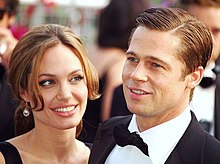
Celebrity is a phenomenon of public fame characterised by widespread recognition and attention. Originating from the Latin word "celebritas", it describes individuals, groups or events known and discussed by many. Emerging prominently since the 15th century with the printing press, celebrity status transcends mere fame, requiring significant public recognition. public interest[1]. Celebrities can emerge from a variety of fields, including entertainment, sport, politics[2] and business, and is often amplified by the media and cultural industries. The concept involves complex dynamics of public perception, ranging from admiration to criticism. A culture[3] Contemporary celebrity is marked by extensive media coverage, parasocial relationships and the potential for social influence. Sub-celebrities represent a contemporary variation, achieving fame through personal exposure and media visibility. The academic study of celebrity phenomena began in the 1970s, exploring its psychological, social and cultural implications, emphasising the intricate relationship between public figures and their audiences.
Celebrity is the fame and public attention enjoyed by a person, group, event, work, place, etc. The word comes from Latin celebritiescelebrity, which means "large audience" in a place, "affluence" and, figuratively, "fame". Celebrity is often relayed by the media. What is famous is known, talked about or commented on by many, obtaining reputation and renown.

Although fame is generally considered a prerequisite for celebrity status, it is not always enough. There must be a level of public interest that may or may not be related to the reason for the fame. O status celebrity is usually associated with wealth (generally known as fame and fortune), while fame through the entertainment is usually associated with celebrity status, while political leaders often become celebrities. People can also become celebrities because of media attention on their lifestyle, wealth or controversial actions, or because of their connection to a famous person.
Many personalities only become famous for a short period of time, sometimes after appearing in a TV programme or doing something special that caught the public's attention, such as performing a feat or breaking a record. This event is called "15 minutes of fame".